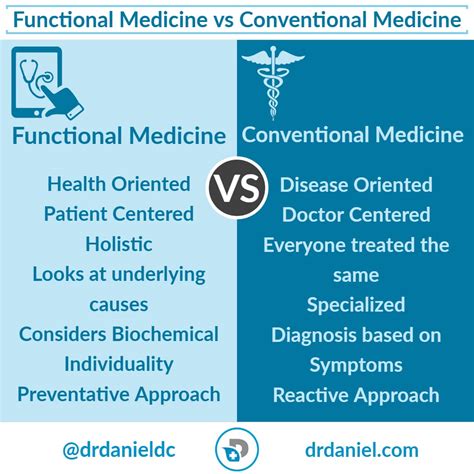Overview
George Washington University (GW) and Georgetown University are renowned institutions for medical education. Both universities offer exceptional programs, but they differ in certain aspects, such as curriculum, research opportunities, and clinical experiences. This article provides an in-depth comparison of GW Medicine and Georgetown Medicine to guide prospective students in making an informed decision.

Curriculum
GW Medicine:
- Four-year curriculum with a focus on integrated clinical and basic science education
- Emphasis on hands-on learning through early patient contact and simulation-based exercises
- Required clerkships in family medicine, internal medicine, pediatrics, psychiatry, and surgery
Georgetown Medicine:
- Four-year curriculum with a traditional approach to medical education
- Strong emphasis on foundational science coursework in the first two years
- Clinical rotations begin in the third year with a focus on core specialties
- Flexibility in elective coursework allows students to tailor their education to their interests
Research Opportunities
GW Medicine:
- 19 research centers and institutes with opportunities for students to engage in cutting-edge research
- Access to state-of-the-art facilities, including the Milken Institute School of Public Health and the National Cancer Institute’s Center for Cancer Research
- Structured research programs for students at various levels, including the Medical Scientist Training Program (MSTP)
Georgetown Medicine:
- 13 research centers and institutes specializing in areas such as cancer, neurosciences, and infectious diseases
- Collaboration with major hospitals and research institutions, including MedStar Georgetown University Hospital and the National Institutes of Health (NIH)
- Dedicated research mentorship programs for medical students
Clinical Experiences
GW Medicine:
- Hospital affiliations with George Washington University Hospital, Children’s National Hospital, and VA Medical Center
- Clinical rotations at multiple healthcare facilities, providing exposure to diverse patient populations
- A focus on community-based health and primary care through partnerships with federally qualified health centers
Georgetown Medicine:
- Hospital affiliations with MedStar Georgetown University Hospital, Sibley Memorial Hospital, and Washington Hospital Center
- Clinical rotations at a wide range of medical centers and specialty clinics
- Opportunities for international clinical experiences through the Global Health Program
Admissions and Demographics
GW Medicine:
- Average MCAT score: 515
- Average GPA: 3.85
- Approximately 17% of students are underrepresented in medicine (URM)
Georgetown Medicine:
- Average MCAT score: 520
- Average GPA: 3.91
- Approximately 12% of students are URM
Rankings and Reputation
GW Medicine:
- Ranked #49 in Research by U.S. News & World Report (2023)
- Ranked #57 in Primary Care by U.S. News & World Report (2023)
- Strong reputation for its interdisciplinary research and commitment to community health
Georgetown Medicine:
- Ranked #20 in Research by U.S. News & World Report (2023)
- Ranked #18 in Primary Care by U.S. News & World Report (2023)
- Recognized for its top-tier research facilities, innovative teaching methods, and exceptional patient care
Cost of Attendance
GW Medicine:
- In-state tuition: $67,080 (2022-2023)
- Out-of-state tuition: $70,360 (2022-2023)
Georgetown Medicine:
- In-state tuition: $66,552 (2022-2023)
- Out-of-state tuition: $69,834 (2022-2023)
Common Mistakes to Avoid
- Not considering fit: Choosing a medical school that aligns with your values, interests, and career goals is crucial. Visit both GW and Georgetown to gauge the culture and environment.
- Focusing solely on rankings: While rankings can provide some insight, they do not always accurately represent the quality of education or fit for individual students.
- Ignoring research opportunities: Medical schools with strong research programs offer valuable opportunities for students to gain hands-on experience, develop critical thinking skills, and contribute to the advancement of medicine.
- Underestimating the cost of attendance: Medical school is an expensive investment. Consider tuition, fees, living expenses, and potential debt before making a decision.
Step-by-Step Approach
- Research: Visit the websites and attend virtual information sessions of both GW and Georgetown Medicine.
- Visit: Schedule in-person visits to the campuses to meet with students, faculty, and administrators.
- Attend admissions events: Participate in online and in-person admissions events to learn more about the curriculum, research opportunities, and clinical experiences.
- Consider your fit: Reflect on your interests, career goals, and values. Determine which medical school aligns best with your aspirations.
- Apply: Submit applications to your top choices while meeting all deadlines and requirements.
Why GW Medicine Matters
- Early clinical exposure: The integrated curriculum provides early and repeated patient contact experiences, fostering a strong clinical foundation.
- Interdisciplinary research: GW Medicine emphasizes interdisciplinary research, creating opportunities for students to collaborate with scientists from diverse fields.
- Community health commitment: The school is dedicated to improving the health of underserved populations through its partnerships with community health centers.
Why Georgetown Medicine Matters
- Top-tier research: The school’s strong research portfolio offers students exceptional opportunities to engage in cutting-edge research and contribute to scientific advancements.
- Clinical excellence: Georgetown Hospital is consistently ranked among the top hospitals in the country, providing students with unparalleled clinical training experiences.
- Global health focus: The Global Health Program offers students the chance to gain international experience and make a significant impact on global health issues.
Conclusion
GW Medicine and Georgetown Medicine offer excellent medical education programs with unique strengths and opportunities. Prospective students should carefully consider their individual interests, career goals, and values to determine which institution is the best fit. By conducting thorough research, attending informational events, and applying strategically, students can make an informed decision that will shape their future as physicians.
